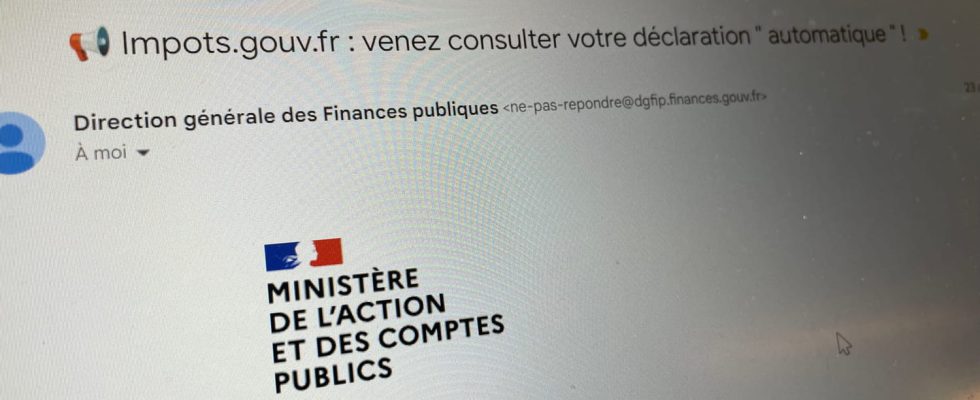The message must be read carefully to avoid an unpleasant surprise.
“Impots.gouv.fr: come and consult your “automatic” declaration!” : this e-mail, whose subject is intriguing, 11 million French people have or will receive it in the days to come. Its sender: the General Directorate of Public Finances (DGFiP). A message which challenges but which must be read with great attention. Because this is not false communication, far from it. It is very official and even very important for those who received it.
As the income declaration period opens on Thursday April 11, 2024, many French people are worried about having to complete, online or in its paper version, the form which asks to detail all the financial resources received in 2023. The Fear of doing wrong in the face of this technical document haunts many taxpayers. However, for several years, it has become less tedious to accomplish this task because the tax authorities already have a large amount of information concerning your income. To the point that, from now on, some people don’t need to do anything! Or almost.
In this email, Taxes states that “this year you simply need to verify the information pre-populated by the administration” and that “if it is accurate and complete, you do not need to do anything further.” Being able to avoid tax paperwork and be sure to return the document on time: a big sigh of relief? Not so fast. Because vigilance must be required.

First of all, people eligible for automatic declaration are only those whose income came, 100% in 2023, from an employer, a pension fund, social minima or even banks, which do not reported no change of address or marital status. The conditions are numerous but a third of taxpayers meet them.
If you are eligible, you will be informed by email. The automatic declaration is established based on the elements of which the tax authorities are aware: your family situation, your income (salaries, pensions, financial investment income), the deductible CSG and the withholding tax already paid. Despite this, it is imperative to check that the amounts entered correspond to what you must declare. If everything is good, you will not have to validate anything, everything will be done automatically.
If they contain an error or an oversight, it is better to make the corrections yourself. Indeed, the law provides that it is the taxpayer who is responsible if the declaration is not accurate. If you realize this once the deadline has passed, an amicable modification will be possible, without penalty, but this will entail additional steps. And if the tax authorities judge that you knowingly did it to hide income, the fine could be steep.
